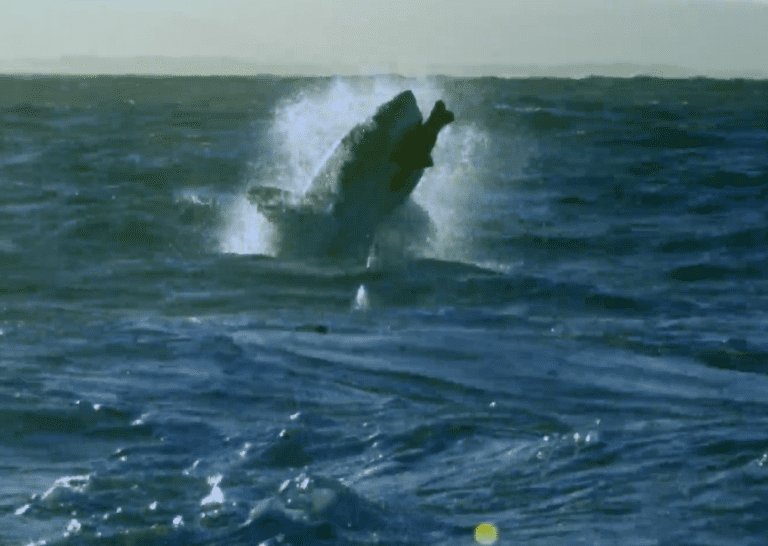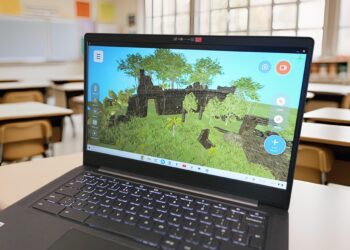Celebrate Discovery Channel’s Shark Week with fin-tastic Shark Week programming and curriculum-aligned lesson starters to fortify STEM concepts, investigate conservation, and explore career connections. Here to share her tips and ideas for diving into an exciting Shark Week with your students is DEN STAR and Texas educator, Dorothy-Ann “Dottie” Vakidis.
For Discovery Education Shark Week, there are many lessons that can be connected to our middle school science standards! In Texas, our academic standards (the Texas Essential Knowledge and Skills) require 6th graders to complete several labs throughout the year focusing on density. A great angle for one of these density labs would be to analyze the salinity of water and how sharks can float well in these waters.
To introduce the topic, I would spark my students’ interest in oceans, salinity, and ocean creatures with DE’s engaging resources. In the lab, we would test how items (preferably plastic sharks for Shark Week!) float in regular water, brackish water, and high-salinity water. Students would then measure differing amounts of salt and observe how the shark floats. To take it a step further, students would track what kinds of animals live in specific salinities in the world, then use this data to answer the question: How does the salinity affect these animals’ survival?
Two major TEKS standards in grades 4-6 are food webs/chains and the effects of global warming. With the variety of Shark Week resources, we can easily tie these concepts together! I would have students focus on how global warming affects algal blooms, then propose the question: How will harmful algal blooms affect sharks and their food supply?
By addressing both algal blooms and sharks’ food supplies, the lesson can tie in food webs and the impacts of global warming. After completing a standard research document, students will put together their information in a DE Studio Board to present their findings to the class. Included in their presentation they must provide basic information on algal blooms and what causes them, how algal blooms can affect shark and aquatic life, and finally their own idea on what could be done to control harmful algal blooms from global warming and protect ocean and aquatic life. You can use this Studio Board as a template to help guide your students in creating this presentation!
Finally, in the younger grades, it would be super fun to have the students to participate in a competitive debate! Separate the class into different “teams” based on different species of sharks, such as Great White Sharks, Mako Sharks, Tiger Sharks, and more! Ask the students to research information about the ocean’s top predators found in Discovery Education and make claims about which shark would win in a race, which has better survival tactics, and which would win in a fight!
Swim into a week of fun science learning with Discovery Education’s Shark Week content! With a variety of resources about sharks, the oceans they live in, and protecting these environments, students can sink their teeth into an exciting lesson about what makes these strong predators unique!

Dorothy-Ann "Dottie" Vakidis
Dorothy-Ann “Dottie” Vakidis is a DEN STAR who has been teaching for 15 years across a variety of subjects, including French, ELA, Makerspace Labs, STEM, and Science. Dottie received her Master’s in Teaching from Austin College in Sherman in 2009. After teaching high school French, she traveled abroad to Taipei where she taught middle school ELA at an international school. She has been teaching in Plano for the last 10 years focusing on STEM Integration and Makerspace Projects in her school’s “Project Integration Lab.” This year she will be teaching 6th grade Earth Science, 8th grade Technology, and will facilitate the K-5 STEM lab.








